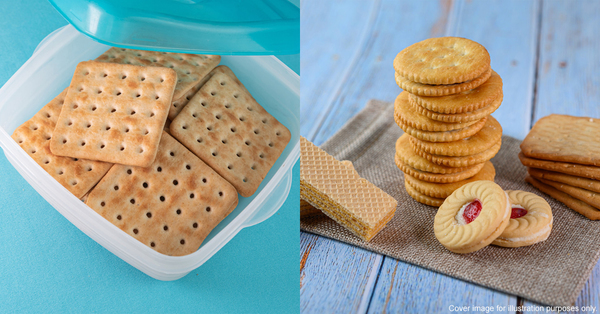Cover image via
user3802032/Freepik
& jcomp/Freepik
Subscribe to our Telegram channel for our latest stories and breaking news.
The consumer watchdog revealed on Monday, 18 October, that they have found traces of glycidol and acrylamide in all of the various biscuit brands they tested.
The biscuits they tested include popular brands that can also be found worldwide.
Animal testing has shown that both glycidol and acrylamide may induce cancer.
The European Union (EU) has a safety benchmark for acrylamide, which is 350mcg/kg of biscuits. However, the tests found that even a handful of biscuits exceeded the limit.
Meanwhile, not quoting a safety limit, the levels of glycidol in the samples they tested had a wide range from 11mcg/kg to over 3,900mcg/kg.
According to South China Morning Post, 3-MCPD is another manufacturing by-product known to affect kidneys and male reproductive organs.
With the highest reading of 2,000mcg/kg of the contaminant in their test samples, the European Food Safety Authority (EFSA) says an adult can only consume up to eight biscuits to stay within the recommended daily intake.
Meanwhile, a child of about five years old can only eat three biscuits to not cross the contaminant level.
Meanwhile, 40% of the biscuits carried misleading nutrition labels, which the council stressed was important information for consumers, especially those with long-term illnesses, such as diabetes and heart diseases.
The most severe case was a sample of crackers detected with a saturated fatty acid content that exceeded the labelled amount by 76 times.
They said while biscuits may be a humble snack, they should not be a substitute for regular meals.
Healthier alternatives such as fresh fruit, unsalted roasted nuts, seeds, low-sugar soy milk, and low-fat or skimmed milk were suggested.
The council also urged manufacturers to improve their production and to reduce the levels of contaminants, fat, sugar, and sodium in their food.
Read the full report here.



